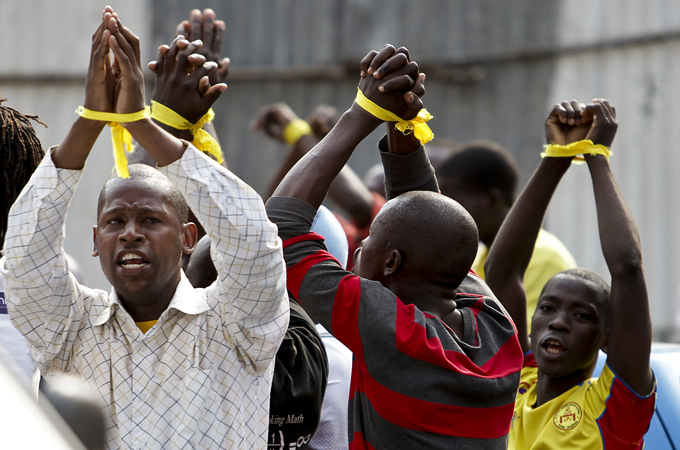سبحان الله ، كل واحد كما يرى هذه الحياة الدنيا ،
الكثير من البشر يرى أن امتلاك السلطة والحق هي أساس الحياة
الاخر تساله عن الحياة فيجيب نحن فقط نأكل ونشرب ولا حياة لنا
وهناك من يقول بان الوزير أو الشخصيات الكبرى هي التي تعيش حياة أفضل
لانها تمتلك الحكم والمال ، ناهيك عن الفيلا ت والعمارات والسيارات الفخمة
بينما البعض الاخر يرى الحياة في حب شخص (طبعا ذلك الحب اللا أخلاقي)
بينما فصيلة اخرى تؤكد أن الحياة في استغلال الناس وهتك الاعراض والسرقة و الزور...
أما الفصيلة العجيبة فهي تمل هده الحياة ، وتجد في قتل الغير أو الانتحار لذة مهما كلف دلك
لكن فئة أخرى تمتنع عن معرفة هده الحياة الفانية وتجد اللدة في السهر وشرب الخمور لنسيان مشاكلها
لكن تبقى الفئة القلة تجد أن الحياة في حب الله واتباع أوامره واجتناب نواهيه
وأن الحياة فانية وأن الدار الاخرى هي الباقية لا محال ولا ريب
ولا ننسى أن الله تعالى دكر هده الحياة في ايات عدة ، نذكر منها
قوله تعالى : ""اعْلَمُوا
أَنَّمَا الْحَيَاةُ الدُّنْيَا لَعِبٌ وَلَهْوٌ وَزِينَةٌ وَتَفَاخُرٌ
بَيْنَكُمْ وَتَكَاثُرٌ فِي الْأَمْوَالِ وَالْأَوْلَادِ كَمَثَلِ غَيْثٍ
أَعْجَبَ الْكُفَّارَ نَبَاتُهُ ثُمَّ يَهِيجُ فَتَرَاهُ مُصْفَرًّا ثُمَّ
يَكُونُ حُطَامًا وَفِي الْآَخِرَةِ عَذَابٌ شَدِيدٌ وَمَغْفِرَةٌ مِنَ
اللَّهِ وَرِضْوَانٌ وَمَا الْحَيَاةُ الدُّنْيَا إِلَّا مَتَاعُ
الْغُرُور""ِ
وقوله أيضا عز وجل :
""إِنَّمَا الْحَيَاةُ الدُّنْيَا لَعِبٌ وَلَهْوٌ وَإِنْ تُؤْمِنُوا
وَتَتَّقُوا يُؤْتِكُمْ أُجُورَكُمْ وَلَا يَسْأَلْكُمْ أَمْوَالَكُمْ ""
والخطاب في الآيتين للمؤمنين.
قال
الشيخ السعدي رحمه الله تعالى في تفسير آية الحديد: يخبر تعالى عن حقيقة
الدنيا وما هي عليه ويبين غايتها وغاية أهلها بأنها لعب ولهو تلعب بها
الأبدان وتلهو بها القلوب، وهذا مصداق ما هو موجود وواقع من أبناء الدنيا
فإنك تجدهم قد قطعوا أوقات عمرهم بلهو قلوبهم وغفلتهم عن ذكر ربهم وعما
أمامهم من الوعد والوعيد، تراهم قد اتخذوا دينهم لعبا ولهوا بخلاف أهل
اليقظة وعمال الآخرة فإن قلوبهم معمورة بذكر الله ومعرفته ومحبته وقد شغلوا
أوقاتهم بالأعمال التي تقربهم إلى الله من النفع القاصر والمتعدي.
بالطبع هناك أيات أخرى وأحاديث عن هدا الموضوع
ألا ترون أيه الاخوة والاخوات أن كل ما في هده الدنيا فان وله نهاية
وأن الدور الدي نلعبه هنا هو عبادة الله تعالى
يقول سبحانه وتعالى :'' وما خلقت الجن والانس إلا ليعبدون..''
أتمنى الاستفادة والعمل الصالح للجميع
اللهم اجعلنا من الدين يستمعون القول فيتبعون أحسنه


























